
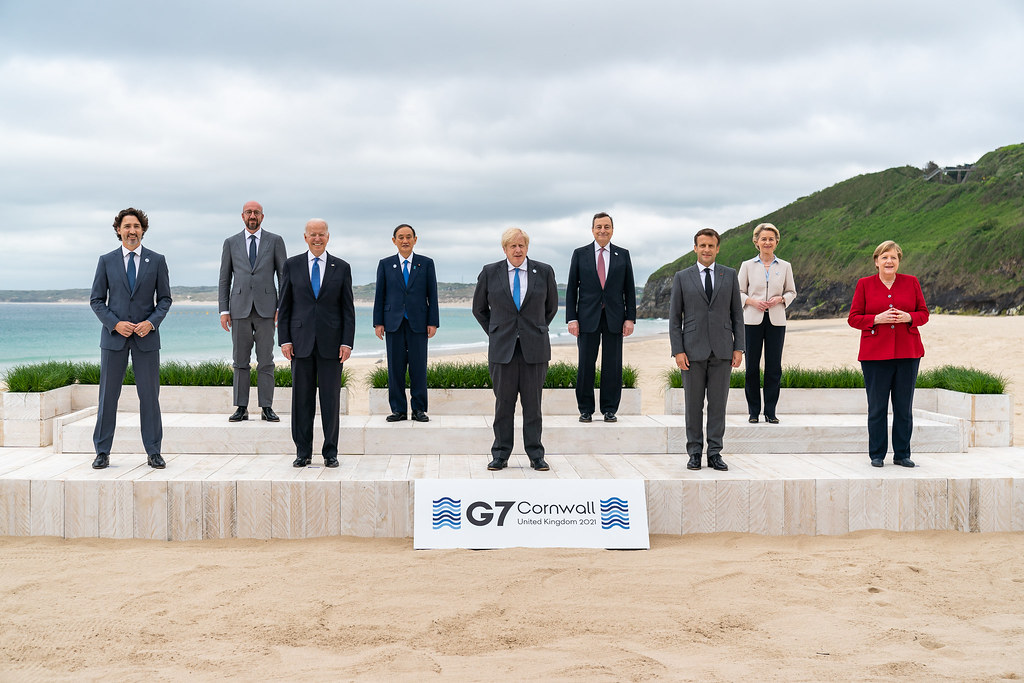
– On June 12, the G7 announced the Build Back Better World (B3W), an infrastructure initiative that rivals China’s Belt and Road Initiative.
– U.S. foreign-affairs agencies are offering financial incentives, workshops and training to countries that decide to not use Chinese telecom equipment.
– The U.S. is exploring possibilities of a high-level U.S.-China meeting between the two countries’ top diplomats, said Financial Times. Multiple officials from the U.S. and China denied the message.
Associated News References:
“No meeting planned between Blinken and China’s Wang at G20 -U.S. official,” Reuters, June 23 [Paywall]
“China, U.S. May Hold Diplomatic Talks Next Week, FT Reports,” Bloomberg News, June 23 [Paywall]
“U.S. Fight Against Chinese 5G Efforts Shifts From Threats to Incentives,” The Wall Street Journal, June 14 [Paywall]
“FACT SHEET: President Biden and G7 Leaders Launch Build Back Better World (B3W) Partnership,” the White House, June 12
“G7 leaders adopt ‘Build Back Better World’ plan to rival China’s belt and road strategy,” South China Morning Post, June 12 [Paywall]
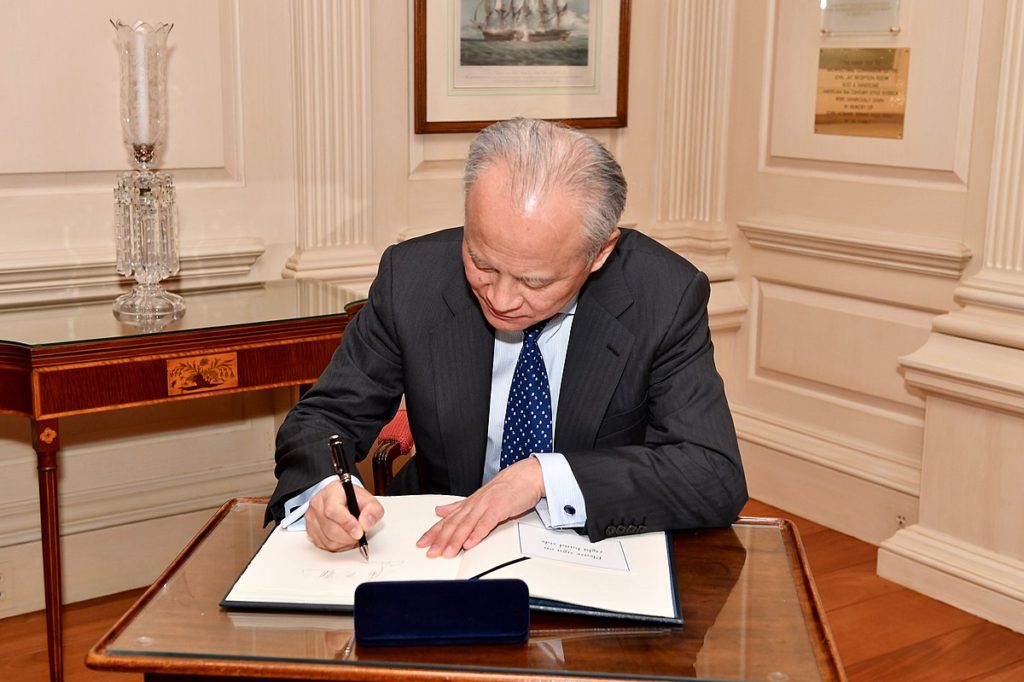
– China’s longest-serving ambassador to the U.S., Cui Tiankai said on June 22 that he will be leaving his post after eight years of service.
– China’s foreign ministry declined to comment on Tuesday on who would succeed Cui, but sources told Reuters that Qin Gang, a trusted aid of President Xi Jinping “known for his sharp retorts to criticism of China” will be China’s new ambassador to the United States.
– The Communist Party of China marks the 100th anniversary of its founding on July 1, 2021. Celebrations are expected to occur throughout Beijing and elsewhere in the country.
Associated News References:
“China’s Communists Face Daunting Future as Party Marks 100 Years,” Bloomberg, June 28 [Paywall]
“An Anxious 100th Birthday for China’s Communist Party,” The Wall Street Journal, June 25 [Paywall]
”Qin Gang set to be named China’s new ambassador to U.S., as veteran Cui leaves,” Reuters, June 22 [Paywall]
“China’s ambassador to the US to leave after eight years,” The Guardian, June 22

– China enacted a new “anti-foreign-sanctions law” on June 10, expediting the legislative process for countermeasures against “discriminatory” foreign sanctions.
– Media articles scrutinize China’s solar industry for use of alleged forced labor as well as the amount of U.S. mutual fund investment in the industry.
– Research says that a month-long analysis of more than 3,000 videos reveals an influence campaign by China on the lives of those who live in Xinjiang.
Associated News References:
“Solar industry’s ties to China’s Xinjiang region raise specter of forced labor,” The Washington Post, June 24 [Paywall]
”In windfall for Xinjiang, huge US mutual funds invest millions in its companies,” South China Morning Post, June 24 [Paywall]
“Biden to Deter Forced Labor With Ban on China’s Solar-Panel Materials,” The Wall Street Journal, June 24 [Paywall]
”’We Are Very Free’: How China Spreads Its Propaganda Version of Life in Xinjiang,” The New York Times, June 22 [Paywall]
”China Passes Law to Counter Foreign Sanctions.” The Wall Street Journal, June 10 [Paywall]
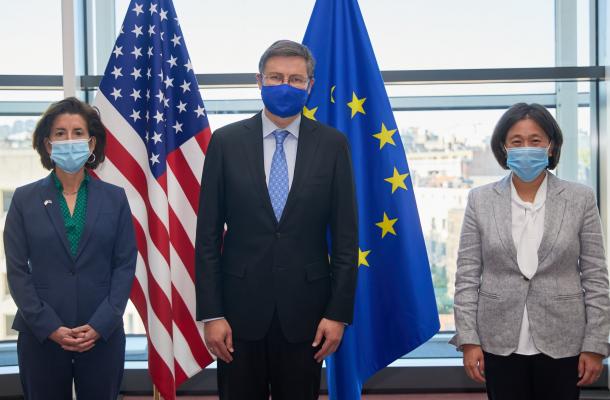
– The U.S. House of Representatives Foreign Affairs Committee plans to consider the Eagle Act on June 30. The legislation aims to increase U.S. economic competitiveness and pressures China on human rights concerns.
– China’s imports of U.S. goods in May reached the lowest point since October 2020, further stretching the possibility that the purchase targets set by the Phase One Deal can be reached.
– On June 15, several U.S. senators introduced a legislation that makes it easier to block imports believed to be made from U.S. trade secrets when authorities investigated the alleged theft.
– Chinese Commerce Minister Wang Wentao and U.S. Secretary of Commerce Gina Raimondo had their first phone call June 9 (EST). They “agreed to promote the healthy development of pragmatic cooperation in trade and investment.”
Associated News References:
“U.S. House committee to consider sweeping China bill next week,” Reuters, June 24
China’s Progress on U.S. Trade Deal Slowed Again in May,” Bloomberg, June 21 [Paywall]
“Legislation Aimed at China Seeks to Expedite Probes of Trade-Secret Thefts,” The Wall Street Journal, June 15 [Paywall]
“Readout of U.S. Secretary of Commerce Gina M. Raimondo Call with Minister of Commerce Wang Wentao of the People’s Republic of China,” U.S. Department of Commerce, June 10
”China and the U.S. Agree to Push Forward Trade, Investment Ties,” Bloomberg, June 9 [Paywall]

– U.S. Guided-missile destroyer USS Curtis Wilbur sailed through the Taiwan Strait on June 22; the sixth transit through the Taiwan Strait since Biden was sworn in as President.
– The U.S. is removing missile defense systems and other military hardware and personnel from the Middle East, a move that reflects a shift of focus to China and Russia.
– China has deployed J-20 stealth fighter jets to air force units monitoring the Taiwan Strait and the East China Sea.
– On June 14, NATO leaders said that China poses a “systemic challenge” in a joint communique. China’s Mission to the EU called the statement a slander.
– On June 15, Chinese People’s Liberation Army dispatched a record number of planes into the international airspace surrounding Taiwan.
– A U.S. aircraft carrier group led by the USS Ronald Reagan entered the South China Sea on June 15. The U.S. Navy said it is part of a routine mission.
Associated News References:
“China deploys J-20 stealth fighter jets to units monitoring Taiwan Strait,” South China Morning Post, June 26 [Paywall]
“Destroyer Makes Sixth Taiwan Strait Transit During Biden Administration,” USNI News, June 22
“Pentagon pulls missile defense, other systems from Saudi Arabia and other Middle East countries,” CNN, June 18
“China sends largest group of military aircraft in single day near Taiwan,” Defense News, June 16
“US Navy aircraft carrier USS Reagan enters South China Sea,”Al Jazeera, June 15
“Nato warns of military challenge posed by China,” BBC, June 15
“Brussels Summit Communiqué,” the North Atlantic Council, June 14
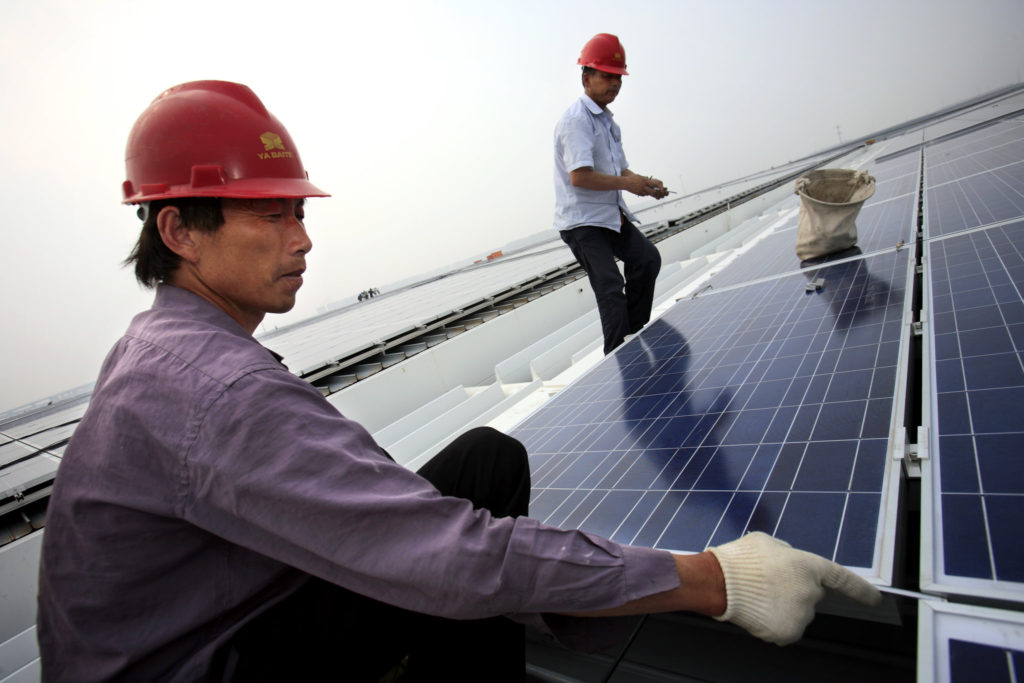
– The United States and European Union launched the EU-US Trade and Technology Council (TTC) on June 15, 2021. TTC aims to increase innovation and investment within and between the US and EU.
– Seeking to acquire congressional funding for NASA’s return to the moon, NASA Administrator Bill Nelson highlighted the need to compete with China for leadership in space.
– The media says Washington’s plan to boost funding and policy support to areas such as advanced computing and solar power industry can help them compete against China.
– Chinese President Xi Jinping picked economic adviser Liu He to lead a key initiative aiming to provide financial and policy support for Chinese chipmakers.
– The U.S. government assesses the report of a leak at China’s Taishan Nuclear Power Plant in Guangdong, but decides that the facility is not yet at a “crisis level.”
Associated News References:
”US advanced computing has ‘shrunk to alarming state’ compared to China’s, warns defence contractor,” South China Morning Post, June 24 [Paywall]
”Can America’s Solar Power Industry Compete with China’s? One Firm Tries,” The Wall Street Journal, June 21 [Paywall]
“U.S., EU Forge Closer Ties on Emerging Technologies to Counter Russia and China,” The Wall Street Journal, June 17 [Paywall]
”As China’s space ambitions grow, NASA tells Congress it needs more money to compete,” The Washington Post, June 17 [Paywall]
“Xi Jinping Picks Top Lieutenant to Lead China’s Chip Battle Against U.S.,” Bloomberg, June 17 [Paywall]
”EU-US launch Trade and Technology Council to lead values-based global digital transformation,“ European Commission, June 15
”Exclusive: US assessing reported leak at Chinese nuclear power facility,” CNN, June 14
To our Readers,
As we reach the halfway point of 2021 and prepare for an upcoming expansion in our programs, the Institute for China-America Studies has decided to take a fresh look at its materials in an effort to identify areas of improvement and renovation.
As part of this self-review, the ICAS Team has decided to reinvigorate the ICAS Bulletin–our longest-running serial publication–into a more engaging and audience-oriented design. It is our hope that this new format will both better serve our readers in understanding the current trends in the U.S.-China relationship and inform our readers of our activities at the Institute.
We are very excited to share this renovation with our readers and would like to extend our gratitude for your continued support! Keep an eye out for other upcoming announcements as we continue to grow in our goal to promote greater understanding between these two countries and societies.
Sincerely,
The ICAS Bulletin Editors
Competitive candidates will have a keen interest in U.S.-China relations and be pursuing a master’s degree, or have recently obtained a bachelor’s degree, from an accredited institution. We are looking for problem solvers who can think on their feet and anticipate tasks ahead of time. Candidates with previous research experience at a D.C. think tank are preferred. Professional fluency in English is required. Professional fluency in Mandarin Chinese is desirable. Both in-person and remote work are acceptable. The candidate must be available for a minimum four-month period starting in July 2021.
Specific duties, qualifications, benefits and the application process can be found on the ICAS Internships page.
On Saturday, June 26, 2021, Senior Fellow Sourabh Gupta was quoted by the South China Morning Post discussing China’s efforts to improve its image internationally.
On Sunday, June 27, 2021, Senior Fellow Sourabh Gupta discussed China’s economic reforms on CGTN America’s The World Today.
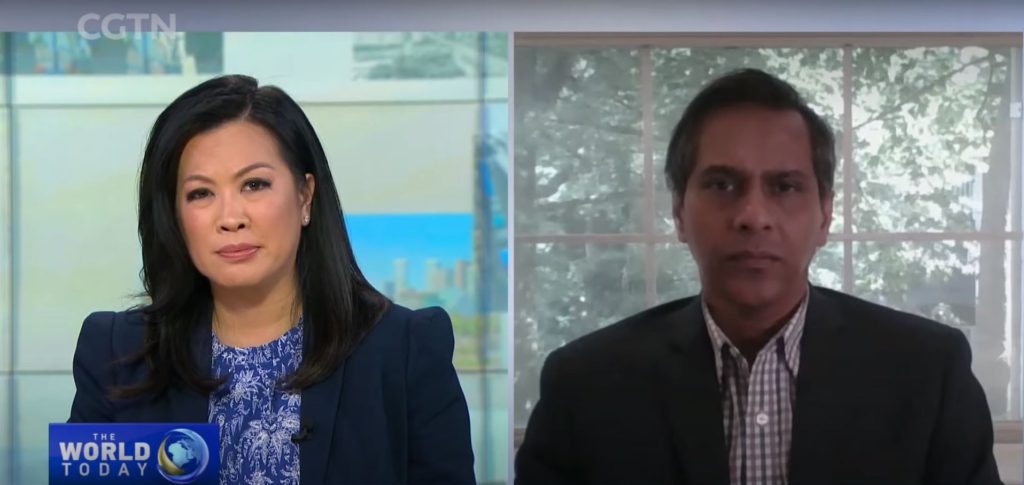

The Institute for China-America Studies is an independent nonprofit, nonpartisan research organization dedicated to strengthening the understanding of U.S.-China relations through expert analysis and practical policy solutions.
1919 M St. NW Suite 310,
Washington, DC 20036
icas@chinaus-icas.org
(202) 968-0595
© 2025 INSTITUTE FOR CHINA-AMERICA STUDIES. ALL RIGHTS RESERVED.